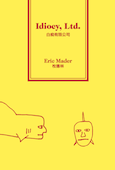Sunday, June 20, 2021
Waugh's Miracle
I’ve finally started reading Waugh, and, why not, I’ve begun with Brideshead Revisited. Really extraordinary.
I knew Brideshead would be “masterful”, but didn’t expect there’d be so much life in it. I suppose it’s my prejudice against the post-Victorian English, which led me always to imagine this book as largely a parade of pouty toffs. That it’s a deeply Catholic novel saves it. Class tics become entirely secondary to the book’s main burden: the quiet but irresistible flame of the Holy Spirit.
It’s as close as a novel gets to perfect. And wonderfully, there’s a great enigma at the heart of it—Lady Marchmain and the question of just what about her drives the others away, each of them to be dragged back to the faith she inculcated, on wildly various rock-strewn paths, by the workings of grace.
Waugh’s staging of the homoerotic theme is a wonder as well. He casts a spectrum, ranging from the toxic queen Anthony Blanche, to Sebastian, and finally to the narrator. But no major character in the novel stays quite put; none is a mere type. In this trio, even Blanche, the most stereotypical, ends up shining in his way, at his last meeting with Ryder where he eviscerates the latter’s South American canvases.
But I don’t intend to begin writing on the individual characters and what they see or can’t see. There’s so much to think through—a sense of real, living enigma.
I’d often read about Waugh’s style, and now experience it as reader. In fact it’s a kind of miracle. Waugh's prose is creamy and smooth, yet at the same time razor sharp. How is that done?
I’m grateful to Fr. Paul Mankowski. It was his 2017 essay on Waugh, also belatedly read and come upon by chance, that led me to begin reading.
Subscribe to:
Posts (Atom)

